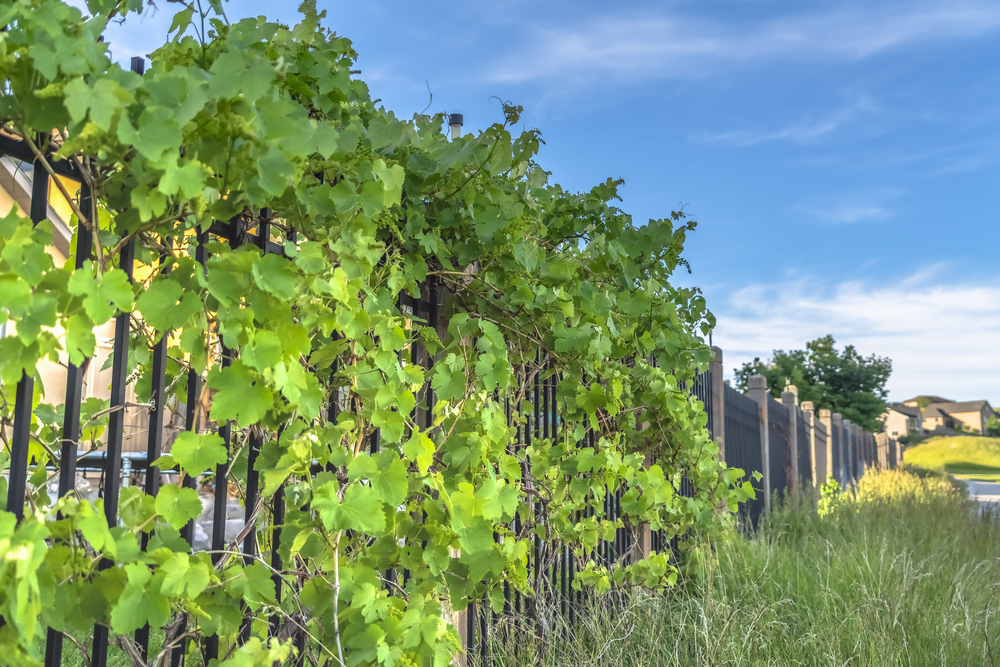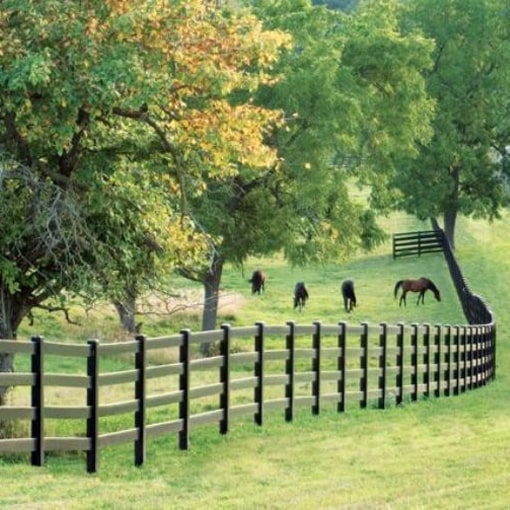All Categories
Featured

Choosing the appropriate secure fencing material is essential for attaining the balance of durability, visual appeals, and performance that suits your building. Wood, plastic, and light weight aluminum are preferred options, each with unique attributes that provide to specific requirements. Right here's an in-depth check out the advantages and downsides of these 3 materials.
Wood Fence. Pros:. Timeless Appeal: Timber uses an all-natural, traditional look that complements numerous architectural styles. Personalized: It can be painted or tarnished in a variety of shades and styles. Economical: Timber fencings are often cheaper upfront than plastic or aluminum. Eco-Friendly: As a renewable energy, wood is naturally degradable and lasting when sourced responsibly. Disadvantages:. Maintenance-Intensive: Calls for routine staining, painting, or sealing to safeguard against weather condition and bugs. Much Shorter Lifespan: Depending on the sort of timber and climate, it normally lasts 10-15 years. Vulnerability to Damage: Prone to deteriorating, warping, and termite damage without appropriate care. Wood is suitable for homeowners that value visual appeals and agree to invest time and effort in upkeep to lengthen its life.
Plastic Fence. Pros:. Sturdy: Resistant to insects, rot, and weather, vinyl maintains its framework in severe conditions. Low Upkeep: Calls for little maintenance beyond periodic cleaning. Long Life-span: Plastic can last 20-30 years without significant wear or damages. Versatile Layouts: Offered in different colors, appearances, and designs, including alternatives that mimic wood. Cons:. Expensive Installment: Plastic fences are a lot more costly to mount contrasted to timber. Breakable in Winter: Vinyl can split in severe chilly environments. Tough to Repair work: If damaged, whole sections might need substitute, which can be testing to match. Plastic fence is an excellent option for those prioritizing longevity and very little upkeep, also if it includes a greater in advance expense.

Light Weight Aluminum Fencing. Pros:. Rust-Resistant: Aluminum does not corrosion, making it perfect for damp or wet locations. Light-weight but Solid: Deals strength without being extremely heavy, which simplifies setup. Reduced Maintenance: Needs bit greater than cleaning and periodic repainting. Longevity: Aluminum fences can last for decades without considerable degeneration. Classy Layouts: Typically utilized for attractive objectives, light weight aluminum includes refinement to any kind of residential property. Disadvantages:. High First Cost: Light weight aluminum fences are among the a lot more costly choices. Restricted Privacy: Typically developed with open spaces, they do not block views or noise. Prone to Damages: While durable, light weight aluminum can be dented or curved with heavy influence. Aluminum is ideal fit for those that desire a resilient, trendy fence and do not call for complete personal privacy.
Making the Right Choice. Each material has its strengths and weak points:

Wood is excellent for eco-conscious buyers and typical aesthetics who do not mind upkeep. Plastic functions for home owners looking for a weather-resistant, low-maintenance service. Light weight aluminum is a durable, decorative alternative for those that desire beauty and durability. Consider your concerns-- whether it's price, privacy, maintenance, or appearance-- and get in touch with a secure fencing professional to select the product that ideal satisfies your needs. A well-selected fencing will certainly improve your residential property for years to come.
Latest Posts
Find Out Reduce Expenses on Car Maintenance with Montclare Auto Repair’s Limited-Time Deals
Published May 26, 25
1 min read
Uncover Oil Changes & More: Complete Services Guide from Montclare Auto Repair
Published May 25, 25
1 min read
Unlock Your Financial Partner at WyHy – Top Benefits for Your Money Goals
Published May 25, 25
1 min read
More
Latest Posts
Find Out Reduce Expenses on Car Maintenance with Montclare Auto Repair’s Limited-Time Deals
Published May 26, 25
1 min read
Uncover Oil Changes & More: Complete Services Guide from Montclare Auto Repair
Published May 25, 25
1 min read
Unlock Your Financial Partner at WyHy – Top Benefits for Your Money Goals
Published May 25, 25
1 min read